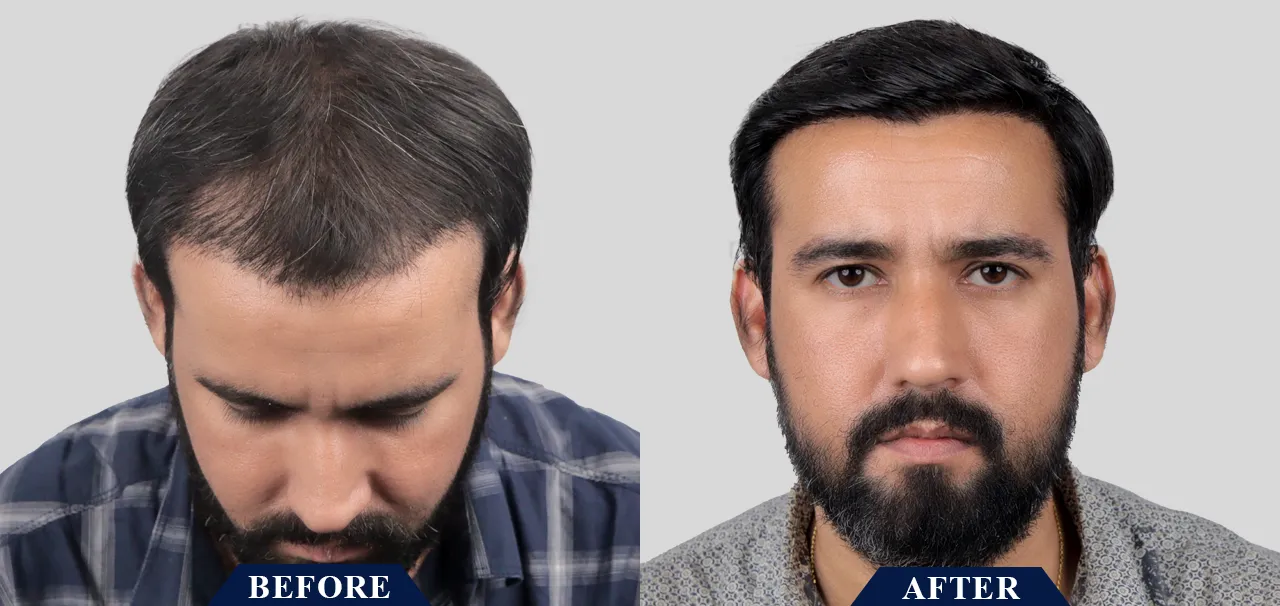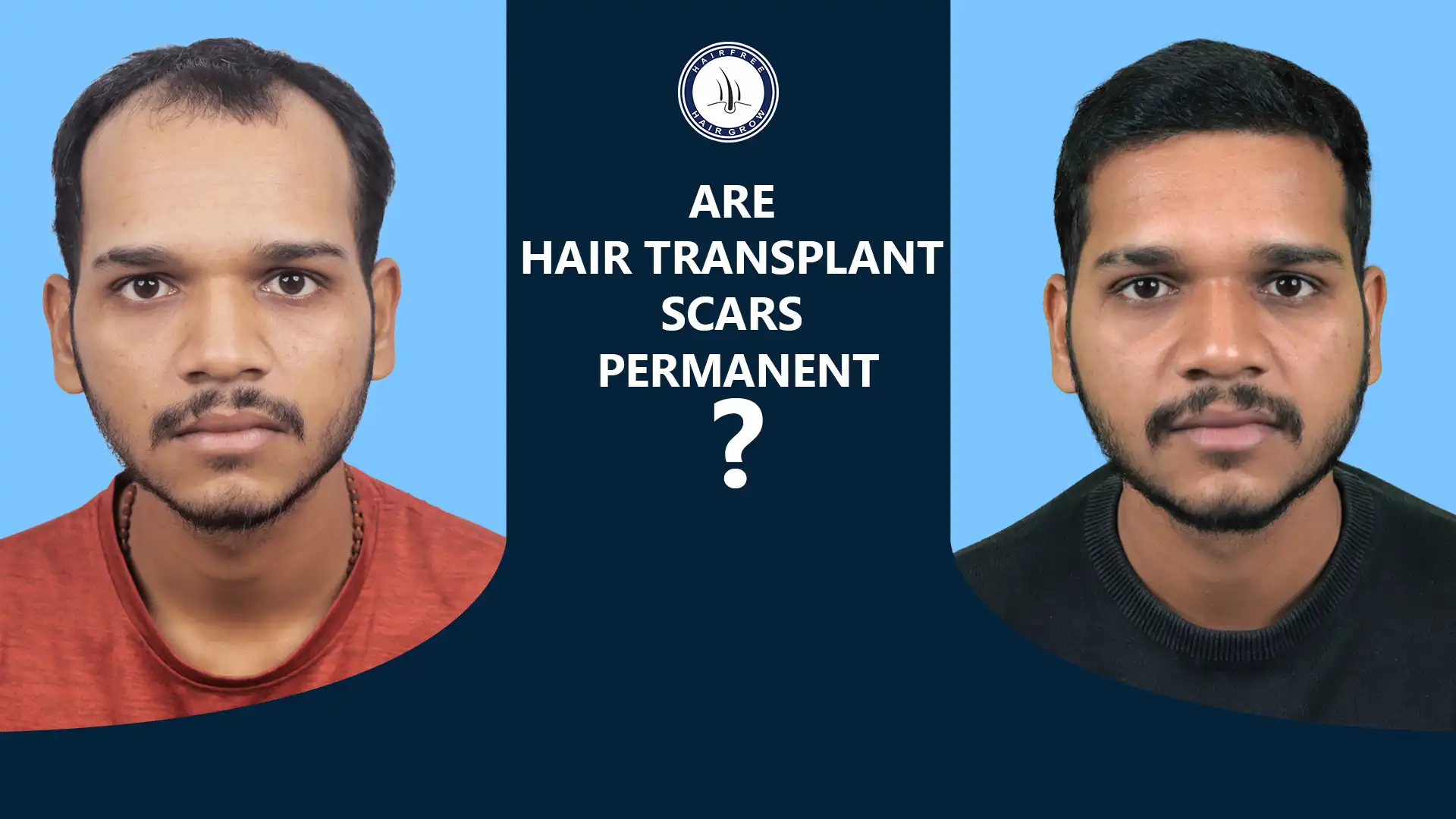
Are Hair Transplant Consultation Free? What to Expect and Why They Matter
Yes, many hair transplant clinics offer free consultations. These consultations allow you to discuss your hair loss concerns, evaluate your

Telogen effluvium or hair shedding which arises during the telogen or resting phase of hair growth cycle. It is in complete opposition to anagen effluvium where hair shedding happens during the growth stages.
Scalp biopsy is very important because it also shows anagen to telogen ratio and shows how many hairs are in the resting phase and how many are actively growing. In a normal healthy person, about 85% of hair is actively growing and the rest 15% is resting. Due to shock caused by fever, infections or anything else, there can be an increase in hair loss and at its peak, about 70% of hair can turn into the telogen phase. Normally a hair follicle grows as anagen hair for 4 years or more, and then there is a resting phase of 4 months, which is the telogen phase. Telogen effluvium doesn’t cause complete baldness, although it can be a genetic indicator of future balding.
In many cases, telogen effluvium improves on its own without any specific treatment.
Addressing the underlying cause, if possible, can help prevent future hair loss. This might involve stress management techniques, dietary changes to improve nutrient intake, or discontinuing medications that may be contributing to hair loss.
Maintaining a balanced diet rich in protein, iron, vitamins, and minerals can promote healthy hair growth.
In cases of severe hair loss, a dermatologist or hair specialist may recommend medications or other treatments to stimulate hair growth. Hair transplants may be an option for certain types of hair loss, but this is not typically necessary for telogen effluvium.

Yes, many hair transplant clinics offer free consultations. These consultations allow you to discuss your hair loss concerns, evaluate your

Generally, no, hair transplants are not covered by insurance in India, especially for cosmetic purposes like male pattern baldness. Hair

Yes, hair transplant scars are generally considered permanent, but their appearance can improve over time and be minimized with careful
Find Out in 3 Minutes, Your Hair Problem Solution.
Telogen Effluvium is excessive hair shedding due to hairs prematurely entering the resting (telogen) phase. Anagen Effluvium, however, involves rapid hair loss during the growth (anagen) phase, often caused by chemotherapy. Telogen is gradual; Anagen is sudden and severe.
Telogen Effluvium can be triggered by stress, hormonal changes (like pregnancy), nutritional deficiencies, medications, or illnesses like thyroid disorders. Major life events, surgery, or rapid weight loss can also push hair follicles into the resting phase, causing increased shedding.
You might notice more hair falling out than usual, especially when brushing or washing. Hair thinning is diffuse, not patchy, and often follows a stressful event. A doctor may use a pull test or scalp biopsy to confirm.
Telogen Effluvium is usually temporary. Once the underlying trigger, like stress or illness, is addressed, hair typically regrows within 6-12 months. It’s not permanent, but chronic cases may persist if the cause isn’t resolved.
Yes, stress is a common cause of Telogen Effluvium. Emotional or physical stress, like trauma or surgery, can push hair follicles into the resting phase, leading to increased shedding 2-3 months later. Managing stress can help reduce its impact.
Treatments focus on addressing the cause, like correcting nutritional deficiencies or managing stress. Minoxidil may promote regrowth. A balanced diet, supplements (like biotin or iron), and gentle hair care can help. Consult a dermatologist for personalized advice.
Hair regrowth typically starts 6-12 months after the trigger is resolved. New hairs may initially be fine but thicken over time. Patience is key, as the hair cycle takes time to normalize. Consistent care supports recovery.
A balanced diet rich in protein, iron, zinc, and vitamins like D and B12 can prevent and treat Telogen Effluvium. Deficiencies, especially iron or biotin, may worsen shedding. Eating nutrient-dense foods supports healthy hair growth and recovery.
A scalp biopsy involves taking a small skin sample from the scalp to examine hair follicles. It helps confirm Telogen Effluvium by showing an increased number of resting follicles, ruling out other conditions like alopecia areata for accurate diagnosis.
No, Telogen Effluvium doesn’t cause complete baldness. It leads to diffuse thinning, but hair follicles remain intact and can regrow once the trigger is addressed. Unlike scarring alopecias, it’s reversible and doesn’t destroy follicles.